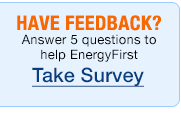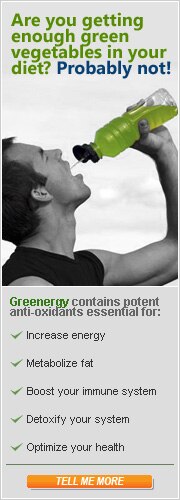President & CEO

Nutrition as an ADHD Alternative Treatment
Do you have a child with ADD/ADHD or know someone who has? Has your doctor merely prescribed Ritalin or some other mind-numbing drug, and sent you both on your merry way without even addressing other factors such as diet? Have you been searching for some alternative remedies to prescription medication, but don't know where to start? This article may give you some answers! Diet has a profound affect on ADD and ADHD. For many people, nutrition alone can effectively work as an ADHD alternative treatment. A growing body of research points to nutritional deficiencies-especially essential fatty acids and amino acids -as a contributing factor of ADD/ADHD and learning deficiencies. Put down the Ritalin bottle for one minute to consider these ADD/ADHD nutrition research findings:
ADD/ADHD is the most common behavioral disorder in children. Statistics and studies show that a significant number of ADD/ADHD children are nutritionally deficient in essential fatty acids. Physicians predominately use drugs such as Ritalin for ADD/ADHD, but studies show that ADD/ADHD children whose treatment program includes medication alone remain at a high risk for vandalism, petty crime, frequency of alcoholic intoxication, and possession of marijuana. Additionally, ADD/ADHD medications can cause potentially harmful side effects and does not treat the cause of ADD/ADHD. With ADD/ADHD, diet is one of the first aspects of treatment to consider. Fatty acids are used to make brain and nerve tissue in the body and are crucial for proper growth, mental function, the immune system, and brain development. The body cannot produce the two fatty acids families, Omega-3 and Omega-6, on its own and therefore must receive these key ingredients through diet and supplementation. The typical Western diet is high in the Omega-6 family of fatty acids (found in corn, canola and safflower oil, margarine, vegetable oil, and shortening). But most Americans young and old are deficient in Omega-3. (Note that processed vegetable oils such as those listed above are not healthy sources of omega-6. They have been processed and refined to enhance shelf life, and in the processing lose their heart- and brain-healthy properties. Excess omega 6 in the diet from these "unhealthy" sources lead to excess inflammation in the body and weight gain, so should be eliminated from the diet. Healthy sources of omega 6 include organic, unrefined, cold-pressed pumpkin, sesame, and sunflower oils, raw nuts and raw seeds). Learning specialists now believe many childhood behavior and learning problems are associated with Omega-3 deficiencies. This deficiency has a greater impact on males because their requirements for essential fatty acids are, in general, much higher. Omega-3 rich foods are essential in a diet for ADD/ADHD adults and children. Cold-water fish such salmon, mackerel, and sardines are rich in EPA/DHA, which is part of the omega 3 family research has shown to improve brain function and help alleviate symptoms of ADD/ADHD. That said, many children simply will not eat fish. And, today, it is difficult to find high-quality fish from toxin-free, clean sources! You do not want you or your children eating fish that is loaded with mercury and other heavy metals, which impact neurological (i.e. brain) health. A pure alternative is taking a high quality, ultra-refined, super concentrated, toxin-free fish oil supplement, such as OmegaEnergy Fish Oil. Three gel caps per day is the adult dose, and 1 a day for children. Ultra-refined fish oil supplements are a must for adults dealing with attention deficit or hyperactivity. If your child is not willing or able to swallow capsules, or if you are a strict vegetarian,n raw, organic flax seed and flax seed oil is the next best alternative. Flax is "food of the Gods" when it comes to Omega-3 fatty acids. Flax seed and flax oil are the richest plant source of Omega-3 fatty acids and offers nutrition that is vital to support healthy childhood behavioral and IQ development. One to two tablespoons of a high quality, organic, cold-pressed flaxseed oil such as OmegaEnergy Oil Blendor ¼ cup certified organic, raw ground flax seeds such as OmegaEnergy Mix should be part of every ADD/ADHD daily diet. In addition to the positive affects on brain functioning, flax also works to prevent heart disease and certain types of cancer. Flax (oil in particular) helps soften skin, balance energy, burn fat, stimulate the metabolism, strengthen the immune system, manage diabetes, and prevent autoimmune disease and inflammatory disorders. Flax also helps alleviate PMS and some menopause symptoms. OmegaEnergy Oil contains 100% certified organic, cold-pressed flax oil, combined with sunflower, sesame, and pumpkin seed oils in a scientifically-recommended ratio of 2 parts omega 3 to 1-part omega 6. OmegaEnergy Mix has the same ratio of omega 3 to omega 6, in the ground seed form. Both the OmegaEnergy Oil and OmegaEnergy Mix are very easy to use in foods, without your child knowing it is there! Here are some easy ways to use (and disguise for your children!) OmegaEnergy Oil and OmegaEnergy Mix:
Most studies conducted on the affects of essential fatty acids found that at least 10 weeks of supplementation is needed to adequately raise fatty acid levels in brain cells. Follow a diet high in Omega-3 fatty acids for at least 10 weeks, and preferably 12 weeks, before judging the effectiveness of these dietary changes on ADD/ADHD symptoms. Important points about OmegaEnergy Oil and OmegaEnergy Mix :
Essential fatty acids are not the only element needed when addressing ADD/ADHD nutrition. Amino acids , from which protein is made, are an integral element since amino acids and essential fatty acids are both needed to work in the body. Therefore, adding quality protein is a key in ADD nutrition. Adults and children with ADD and ADHD can greatly reduce the level of unfocused or misdirected energy by starting the day with a nutritious, whole-foods breakfast that contains essential fat, fiber, and some high quality protein. This will increase concentration, reduce restlessness, and increase mental and physical calm. It is important to avoid a breakfast that contains processed carbohydrates and sugar, which will increase adrenalin production and blood sugar fluctuations, and therefore increase attention deficit. Instead of starting the day with sugared cereals, pancakes covered in syrup, sweet rolls, doughnuts or danishes, try these brain-boosting breakfast ideas:
Many children with ADD/ADHD that have had great results with the EnergyFirst shake for breakfast. Children tend to be very fussy when it comes to taste, so it is important to be patient with them and experiment until you find a flavor that they like, so that they look forward to drinking the shake. The basic recipe for a child-sized EnergyFirst Shake is:
Blend : Add vanilla extract, agave nectar (available at any good health food store), cinnamon, almond extract, or coconut extract if you need more flavor/sweetness. Add ice for a thicker shake. Note : Raw, organic agave nectar is a God-send for children! It has the consistency and taste of honey, but without the blood sugar spikes you can get from honey and maple syrup. Kids just love it! Try these kid-favorite recipes!Choco Banana Delight
|
Our Story

EnergyFirst, a leading company in the all-natural protein and supplement industry, was founded in 1997. We, at EnergyFirst, believe that everyone can benefit from drinking a protein shake whether the goal is optimal nutrition in a meal replacement, an easy and healthy breakfast alternative, a weight loss aid, or a protein supplement for athletes. We also believe that your protein shake should be 100% natural and delicious. Nutritionist, educator, athlete, and EnergyFirst's CEO, Gerry Morton is committed to providing customers with all natural, science-based, effective products for optimal nutrition, weight loss, and a healthy lifestyle.
100% Satisfaction Guarantee
If for any reason you are dissatisfied with your purchase, simply return the unused portion for a full refund." Learn More
Gerry Morton,
President & CEO















